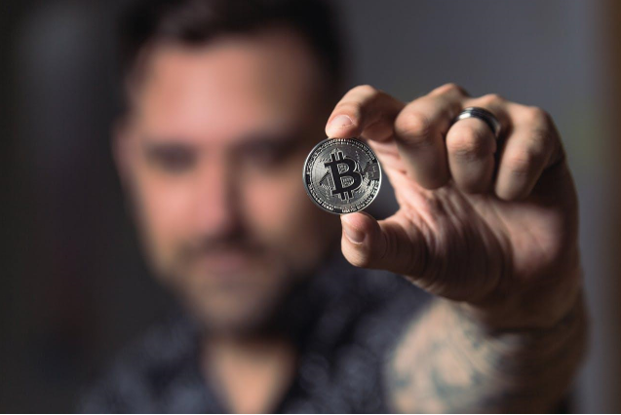The world of finance is constantly evolving, and Bitcoin and cryptocurrencies represent a significant innovation. This talks about these digital assets, explaining what they are, how they work in Brazil, and why you might consider investing in them.
Bitcoin, launched in 2008, became the first and most well-known cryptocurrency. It ushered in a new era of digital money, existing only electronically on a secure network. Unlike traditional currencies like the Brazilian Real (BRL), Bitcoin isn’t controlled by any central bank or government.
While cryptocurrencies can be used for online payments, they’ve also become an attractive investment option in Brazil. Their value fluctuates based on supply and demand, similar to stocks. This volatility can be both a risk and an opportunity for savvy investors.
How Traditional Transactions Worked in Brazil
Before Bitcoin, online transactions in Brazil typically involved a trusted third party, like a bank. This intermediary verified and processed the transfer, often resulting in fees and limitations.
In the days before Bitcoin, online transactions in Brazil functioned through a system centered on physical cash and trusted intermediaries like banks.
A hallmark of this system was the “boleto bancário,” a paper slip with a unique code that functioned like a physical invoice. Buyers would receive a boleto, containing the amount due and a barcode, then pay it with cash or debit card at a bank branch, lottery outlet, or even through online banking with the rise of those services.
Banks played a crucial role by verifying transactions, ensuring sufficient funds, and providing security. However, this traditional system had limitations. Payments could take days to clear, especially for cash boletos, and banks often charged processing fees.
Additionally, not everyone had access to bank accounts, limiting financial inclusion. While Bitcoin and other digital methods are changing the landscape, boletos and bank-based transactions remain prevalent, particularly for offline purchases and among the unbanked population.
How Bitcoin Transactions Work
Bitcoin eliminates the need for a third party in Brazil. Every Bitcoin transaction is recorded on a public ledger called a blockchain. This decentralized system ensures transparency and security, as all participants in the network hold a copy of the transaction history.
Businesses in the 15 largest cities in Brazil that either have a cryptocurrency ATM or offer crypto as an in-store payment method as of March 9, 2021.
São Paulo, the most populous city in Brazil, also had the highest number of companies providing a cryptocurrency ATM or in-store payment method in 2021.
The Power of Blockchain
Blockchain technology underpins Bitcoin and other cryptocurrencies. It allows secure data transfer, making it nearly impossible to counterfeit or tamper with Bitcoin transactions. Each block in the chain chronologically stores data, creating a secure and verifiable record.
Why People Invest in Bitcoin
Investors are drawn to Bitcoin’s potential for growth due to its variable price. They can buy and sell Bitcoin on cryptocurrency exchanges to capitalize on these price fluctuations. However, it’s important to remember that Bitcoin is a relatively new asset class, and its price can be highly volatile.
As per Statista, the cryptocurrency market is expected to grow steadily, reaching a projected total revenue of US$1,577.0 million by 2028. This represents a growth rate of 9.57% annually from 2024. With the number of users reaching 55.01 million by 2028, user penetration is expected to rise from 21.29% in 2024 to 24.77% by 2028.
Factors Affecting Bitcoin Price in Brazil
The price of Bitcoin is dictated by global supply and demand. When there’s high investor interest, the price rises, and vice versa. The Brazilian market’s size can also play a role. Because it’s smaller than some other markets, fewer transactions can cause more significant price swings in Brazil.
The Brazilian Bitcoin Market
The Brazilian Bitcoin market is experiencing exciting growth. Here are some key points to consider:
Regulation
The Brazilian government is taking a cautious approach to cryptocurrency regulation. While there are currently no specific regulations for Bitcoin, the Comissão de Valores Mobiliários (CVM), the Brazilian Securities and Exchange Commission, is actively monitoring the market.
Growing Adoption
Major Brazilian institutions like Nubank are now allowing customers to buy and sell Bitcoin, indicating a rise in mainstream adoption.
Investment Opportunities
Several Brazilian cryptocurrency exchanges offer secure platforms for buying, selling, and trading Bitcoin and other cryptocurrencies.
Considering Bitcoin Investment in Brazil?
Bitcoin’s price can be volatile, so thorough research is crucial before investing. Here are some additional considerations for Brazilians:
- Taxation: The Brazilian tax authority, Receita Federal, considers Bitcoin an asset and taxes capital gains from Bitcoin sales.
- Risks and Scams: As with any investment, there are risks involved with Bitcoin. Be cautious of scams and only invest in reputable cryptocurrency exchanges.
Taxation
In Brazil, cryptocurrencies are treated as valuable assets for tax purposes. Holders need to report their crypto holdings on their income tax returns.
Any profits from selling crypto are subject to capital gains tax, but gains under BRL 35,000 per month are exempt. The capital gains tax rate depends on the amount of profit, ranging from 15% to 22.5%. There’s a current debate on how crypto trading is taxed.
Currently, even swapping cryptocurrencies without converting them to Brazilian Reais is taxable, but a bill is proposed to change this. There’s also a temporary import duty reduction for mining equipment and hardware wallets for specific cryptocurrencies until the end of 2025.
Finally, estate and inheritance taxes on crypto holdings depend on the deceased’s state of residence and range between 2% and 8%.
Bitcoin: A Potential Investment for Your Future
This article equips you with a foundational understanding of Bitcoin and cryptocurrencies. They offer an alternative payment method and a potential investment opportunity in Brazil. By learning more about promising cryptocurrencies and the evolving regulatory landscape, you can make informed investment decisions for your future.
Remember, diversification is key to any sound investment strategy. Consider consulting a financial advisor to determine if Bitcoin is a suitable addition to your portfolio.

